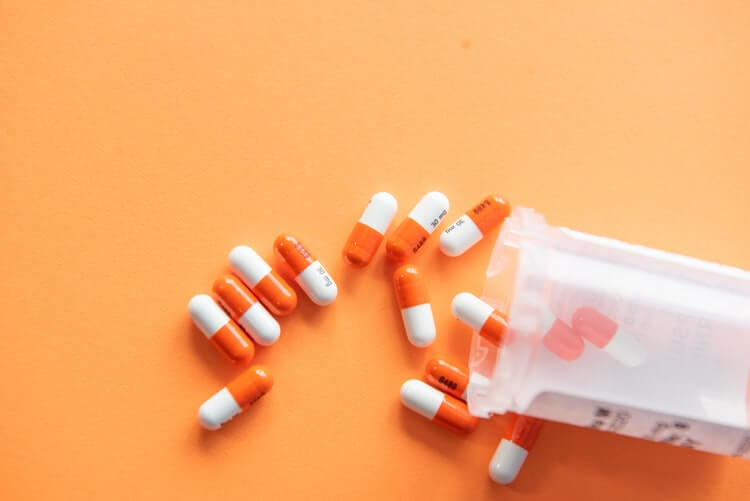Naltrexone is primarily used to treat Opioid Use Disorders (OUD) and Alcohol Use Disorders (AUD). This drug works by blocking out euphoric and sedative effects of heroin, morphine codeine, and alcohol.
This FDA-approved medicine is used for medication-assisted treatment (MAT); however, it is generally paired with other comprehensive treatment plans. These plans include counseling and other behavioral therapies for a whole-person approach.
Here are a few common questions asked by people regarding the drug Naltrexone, the treatment effects, withdrawal symptoms, and much more.
Is Naltrexone Effective?
As noticed in clinical trials, patients who received Naltrexone were more likely to abstain from the overuse of opioids and avoid relapse more than people treated with a placebo sugar pill.
How Does Naltrexone Help With Alcoholism?
Successful reports mention three key changes on this subject:
- Reduced cravings, which is one of the main reasons users drink excessively
- Helps people to abstain from the substance, in some cases entirely
- When patients resulted to a drink, Naltrexone prevented most from having more
Is Naltrexone the Only Solution for Drug or Alcohol Abuse?
Similar to other treatment solutions, drugs for a disorder usually work best with a comprehensive treatment plan. Counseling from professional psychotherapists is recommended as well during the recovery process.
Will Something Serious Happen if I Drink While Taking This Medication?
No, the drug is only meant to reduce the desire to drink, and feelings of intoxication to an extent. There are no reported cases of a severe physical response from the drug on the body while drinking.
How Long Does the Pill Take to Show Its Effects?
The effects of blocking out opioids in the system usually take effect within a few days after dosing. According to doctors’ reports and feedback, Naltrexone has been shown to have worked very early on in the treatment process by helping patients refrain from substance abuse and avoiding relapse.
Who Should Avoid This Medication?
This medicine should not be taken by pregnant women, people with severe liver and kidney problems, and those who cannot abstain from alcohol five days prior to taking Naltrexone. For opioid users, they must stop their drug use seven days before they start this treatment plan.
What Medication Is Safe to Take With Naltrexone?
Naltrexone primarily works on opioid receptors, which are the key component of many pain-relieving medications on the market. Naltrexone may influence the effects of these medications on your body. Since the liver breaks down Naltrexone, other medicine that affects our liver function may potentially interfere with the naltrexone dose. Please ask your doctor for more information on this topic, as many variables exist depending on the medication(s).
However, Naltrexone is noticed to have little effect on antibiotics, non-opioid analgesics (like aspirin, ibuprofen), and allergy pills.
How Long Should I Stay on Naltrexone?
The recommended course is for three months, provided the treatment was effective. It’s the job of the medical care providers to record your improvements and to devise a future plan usually consisting of behavioral therapy or counseling to avoid a relapse.
Are There Any Side Effects of Naltrexone?
According to studies, only a small percentage of people experienced side effects such as:
- Dizziness
- Nausea
- Headache
- Fatigue
- Insomnia
- Anxiety
- Drowsiness
Most of these side effects were mild and of short duration. Around 5-10 percent of people were noted to have severe nausea that caused them to discontinue the drug. For the rest, the symptoms were typically mild. The functionality of the liver can be compromised when on Naltrexone. This is why regular blood tests are carried out before the treatment starts and during the process.
Do I Need to Take a Blood Test?
Yes. A blood test is needed before the onset of the treatment to check your liver function, to know whether it’s functioning normally or not. A blood test during the treatment will check for any adverse effects of the drug on the liver. Blood tests are done every month for three months to make sure everything is normal in the body. Your doctor may recommend continuous blood tests depending on the condition of your liver prior to starting the treatment plan.
Will I Get Sick if I Discontinue?
There is no physical dependence on this medication if stopped. Therefore, you may discontinue at any time without ill consequences. There may also be no rebound effect to resuming the use of opioids or alcohol when Naltrexone is discontinued.
Can I Get an Operation, or Use Pain Killers While Taking Naltrexone?
If you need to get operated on or take painkillers while on Naltrexone, inform your physician about it and carry your prescription card with you. Other opioid-free pain killers may be given to you as an alternative.
However, in case of elective surgery, stop taking this medicine 72 hours prior.
Looking For A Comprehensive Treatment Plan?
Contact us at beataddiction.com to connect to medical professionals with years of experience dealing with Opioid Use Disorders (OUD) and Alcohol Use Disorders (AUD). Take the right step now.

